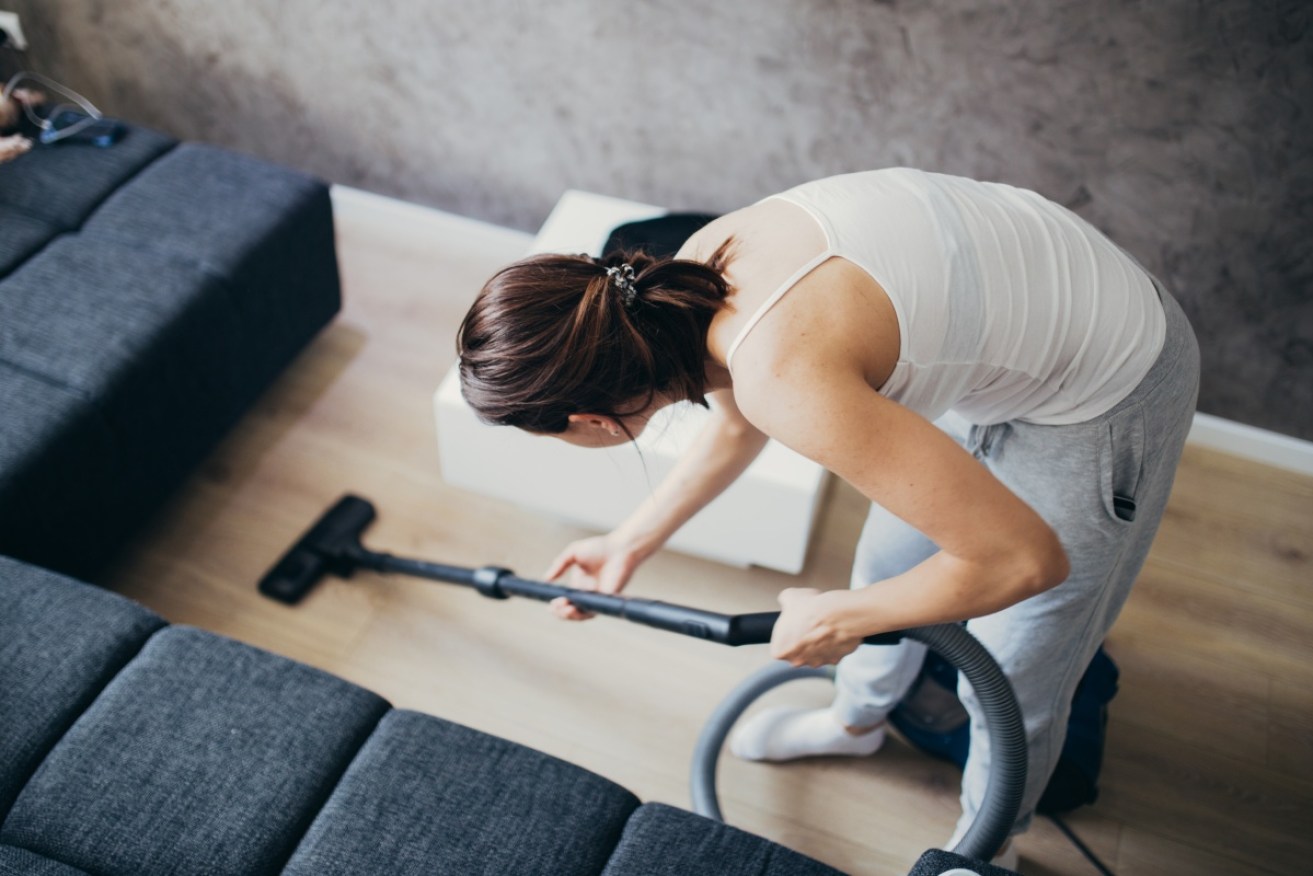The unlikely activities that will extend your life


Domestic chores such as sweeping, vacuuming and scrubbing can increase your lifespan. Photo: Getty
Household chores such as vacuuming and sweeping are enough exercise to help you live longer, an international study has found.
Researchers discovered 30 minutes of activity per day, or 150 minutes a week, can reduce the risk of death from any cause by 28 per cent and risk of heart disease by a fifth.
And according to the study published in The Lancet, you don’t have to go to the gym to achieve this.
From the 130,000 people in 17 countries who took part, less than three per cent achieved the required levels of activity with structured exercise.
Meanwhile, 40 per cent of participants reached the quota through incidental activity such as commuting, having a physical job or domestic chores.
“Part of the problem is we’ve lost so much of this exercise, activity and health is because we’ve designed it out of our day-to-day living. Even for small journeys now we will usually hop in a car, use elevators and lifts,” University of Canberra sport and exercise sciences expert Dr Richard Keegan told The New Daily.

Forty per cent of participants achieved high levels of activity through domestic chores. Photo: Getty
“There’s no option in many people’s lives to get any kind of activity or use any muscles. By adding it into your commutes or unavoidable things like chores, it becomes the most available source of actually getting some activity into your day.”
James Cook University medical and health research associate professor Anthony Leicht echoed the statement and said people don’t have to “fall into the trap” of setting aside that structured 30 minutes a day to achieve results.
Mr Leicht said those participating in active transport and household chores are often better off than those only going to the gym.
“They might go to the gym for 30 minutes a day but then they do no other physical activity for the rest of the day. What we are trying to encourage is the accumulation of physical activity over a week,” he told The New Daily.
Mixing incidental and structured exercise
However, a combination of both structured and incidental exercise is still best for a person’s health and wellbeing, according to experts.
“It’s great that people are doing 30 minutes a day but if we can encourage that as well as increasing incidental activity, such as active transport, we are actually going to see better benefits in the long term for health. That’s not just physical health but also mental and emotional health,” Mr Leicht said.
“The idea is that both in Australia and overseas we’ve looked at setting guidelines of a minimum of 150 minutes of moderate activity per week. It doesn’t matter if you accumulate this in bouts of 30 minutes, five, 10 or two.
“It’s really the accumulation of that physical activity with the idea that the more you accumulate the greater reduction in risk over your lifespan,” he said.
Dr Keegan suggested parking a bit further away from public transport, choosing to use the stairs rather than the lift and deliberately factoring in a walk during your morning coffee as perfect examples of improving your health and activity with relative ease.








